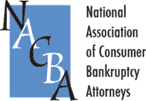
What is a FICO score
A FICO Score means a person’s “Fair Issac Corporation” Score. A mathematician named Bill Isaac developed the FICO scores, a measure of credit risk, which are the most commonly used credit risk score indicators in the world. A FICO score is available through all of the major consumer reporting agencies in the United States and Canada: Equifax; Experian; TransUnion; and PRBC. FICO is a registered trademark of the Fair Isaac Corporation.
A FICO score is calculated from all sorts of different financial data in your credit report. Your credit score is determined by a various factors. The score is determined primarily by five different things. 1) Payment history; 2). Amount of Debt owed; 3). Length of Credit History; 4). New Credit; and 5). Types of Credit used.
Payment history is defined as whether you paid your credit card payments on time, whether you possess the presence of adverse public records such as foreclosures, bankruptcies, or collection efforts. The FICO score takes into account whether you have been late on any payments, or whether you have settled out or closed accounts due to failure to make a payment.
The overall amount owed on your credit is defined as the overall amount of debt you owe on your accounts, plus the FICO score takes into account he percentage of debt you have in proportion to the overall amount of credit you possess. This means that the if you have a line of credit of $20,000.00, yet you only have borrowed $10,000.00, you have a 50% debt/credit ratio.
Length of Credit history is defined as how long you have had credit. This usually is determined by the length in time in which you have had credit card accounts and began financing certain items.
New Credit is defined as how many accounts you have opened up recently. In terms of your FICO score, old accounts are good, because it shows you have been making regular payments for a long period of time, however new credit cards, new loans, or new accounts are bad for your FICO score, because it represents a need to spend money you don’t have, it indicates possible insolvency, and it makes it more difficult for you to pay all your former bills due to the fact that you have new credit to pay back.
Types of credit used is defined as different types of debt. There is unsecured debts such as credit cards, personal loans, and pay day cash advances. Secured debts are car payments, mortgages, and other payments for items that can be repossessed or foreclosed. There are also priority unsecured debts such as student loans and taxes. Unsecured loans such as credit cards and personal loans will have a negative effect on your credit score, due to the fact that they indicate that you are spending frivolously, plus there is no security interest for the creditor to take back if you default on the payments. Unsecured loans are more risky to creditors, thus if you have a majority of unsecured debts this will negatively affect your credit score.
Our attorneys can help you repair your credit, we can explain to you why your credit score is being negatively affected, and we can put a plan into action to help your score. Please call our office today to set up a FREE consultation to discuss the different option you have available to help you credit.









